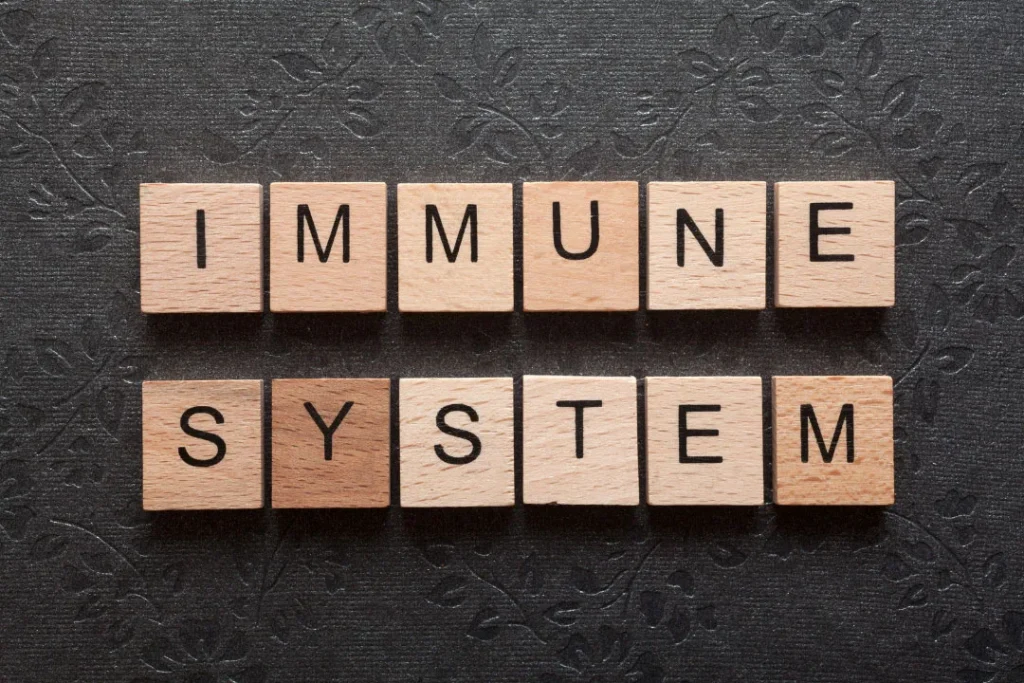Since ancient times, the flowering plant genus Echinacea, which belongs to the daisy family, has served as the main ingredient in several medicinal procedures. Notably, traditional medicine frequently employs the species Echinacea angustifolia, Echinacea purpurea, and Echinacea pallida, particularly in North America. Although echinacea is well known for strengthening the immune system and fighting a variety of illnesses, a thorough investigation of its chemical make-up, potential health advantages, dose recommendations, side effects, and interactions is crucial. These topics will be covered in depth in this essay, along with the physiological effects of echinacea on the body and brain.
You May Also Like:
Should You Try CBD for Focus? Here Are the Facts.
Sunmed CBD vs. Partnered Process CBD: Finding the Best CBD for Sleep
Echinacea: Benefits, Dosage, Side Effects, Drug Interactions, and Other Important Information is an original (NootropicsPlanet) article.
Nature of Echinacea
A perennial plant native to North America, echinacea is distinguished for its enormous, vivid daisy-like blossoms. The leaves, stems, flowers, and roots of the plant are the portions that are frequently employed in medicinal formulations; each of these sections has a unique phytochemical profile. Native Americans have used echinacea for millennia, and the western world eventually accepted it because of its promise for healing. Its uses have included repairing wounds and curing snake bites in addition to treating illnesses like the common cold and flu.
Chemistry of Echinacea
A diverse variety of bioactive components with varying biological effects may be found in different echinacea species. Alkamides, glycoproteins, polysaccharides, and derivatives of caffeic acid such cichoric acid and echinacoside are some of these. Alkamides and polysaccharides are thought to be the main components behind the immunomodulatory effects of echinacea. These elements support the plant’s antioxidant, antiviral, and anti-inflammatory properties, which strengthen the body’s defense mechanisms.

Physiological Mechanisms of Action
Echinacea contains a variety of bioactive substances that interact with the body in a variety of ways and cause a variety of physiological reactions. For instance, akamides play a dual role in both immune system stimulation and anti-inflammatory activities. These substances cause a number of immunological responses, including the production of cytokines and the activation of natural killer cells and phagocytes, when they bind to cannabinoid type 2 (CB2) receptors found on immune cells. These immune cells are vital to the body’s capacity to protect itself from pathogens, improve immunological surveillance, and stave off infections.
Echinacea’s anti-inflammatory properties, on the other hand, result from alkamides’ capacity to suppress important inflammatory pathways. These substances reduce the activity of the COX enzyme, which reduces the formation of prostaglandins, which are important mediators of inflammation. In controlling illnesses linked to chronic inflammation, this effect may be useful.
The polysaccharides, another essential component of echinacea, influence immune function as well, but via a different manner. A kind of white blood cell known as a macrophage that consumes microorganisms, foreign objects, and cellular waste has been discovered to be stimulated by polysaccharides. Polysaccharides improve the body’s immunological response and aid in preserving general health by activating macrophages.
The antioxidant action of the plant is aided by the caffeic acid derivatives found in echinacea, including cichoric acid and echinacoside. These substances prevent the body’s toxic free radicals from harming cells by neutralizing them, preventing oxidative cell damage. Echinacea has the potential to help prevent chronic illnesses including heart disease and many types of cancer by lowering oxidative stress.

Health Benefits of Echinacea
Scientific studies on echinacea’s health advantages show that it largely strengthens the immune system. The activation of macrophages, natural killer cells, and other vital immune cells is how it largely modulates immune response. Echinacea is a possible ally in the battle against infectious illnesses like the common cold or flu since these cells are essential to the body’s early reaction to invaders.
Echinacea’s medicinal effectiveness is also aided by its anti-inflammatory and antioxidant qualities. Alkamides, which block the cyclooxygenase enzyme and decrease the formation of pro-inflammatory chemicals, are primarily responsible for the anti-inflammatory effects. Echinacea’s antioxidant action, which is mostly attributed to its caffeic acid derivatives, aids in your body’s ability to combat dangerous free radicals, potentially lowering the risk of chronic ailments like heart disease.

Optimal Dosage of Echinacea
Echinacea dosage recommendations can be tricky to come up with because of things like the varying concentrations of bioactive chemicals in different plant sections and processing techniques. However, conventional dose recommendations advise people to take 300-500 mg of Echinacea purpurea or angustifolia (root or above-ground portions) three times per day to strengthen the immune system. For a brief period of time, greater dosages may be used to treat acute diseases like colds. Before beginning any herbal supplements, always get medical advice.
Side Effects of Echinacea
Even while echinacea is often thought to be safe for short-term usage, you may experience some negative effects. Among these include skin rashes, allergic responses, gastrointestinal problems, and, in a few rare instances, anaphylaxis. Additionally, those with autoimmune illnesses should use it with caution because of the possibility that it will worsen their problems due to its immunostimulatory properties.

Potential Substance Interactions with Echinacea
Immunosuppressive medicines, among others, may interact with echinacea and lessen its efficacy. Echinacea may also alter the levels and effectiveness of other medications, including certain antifungals, statins, and antivirals due to its possible effect on liver enzymes involved in drug metabolism. Therefore, before using echinacea, people should talk to their doctor, especially if they are on other drugs.
Best Responsible Use
A traditional remedy, echinacea may help to strengthen the immune system. However, just as with any dietary supplement, its usage must be customized to each person’s needs and medical circumstances and must always be under a doctor’s supervision. The ideal application of echinacea in illness prevention and health promotion will continue to be clarified by more study.
Echinacea:
Conclusion
Echinacea is an effective remedy for external wounds and skin damage. You will often find this as an ingredient in some of your favorite, soothing skincare products. However, echinacea can also provide you with the immune support you need to avoid some viral illnesses. This is especially helpful for those who are routinely exposed to large quantities of people in close quarters, such as public transportation drivers or teachers. Consider taking echinacea supplements if you have acne or other inflammatory ailments, but exert caution when taking these supplements daily if you use anti-inflammatory medications such as acetaminophen or ibuprofen.
References:
- Echinacea: Benefits, uses, side effects, and effectiveness. Retrieved from: https://www.medicalnewstoday.com/articles/252684
- Echinacea for the common cold. Retrieved from: https://www.webmd.com/cold-and-flu/cold-guide/echinacea-common-cold
- Echinacea: Uses, side effects, interactions, dosage, and warning. Retrieved from: https://www.webmd.com/vitamins/ai/ingredientmono-981/echinacea
Important Note: The information contained in this article is for general informational purposes only, and should not be construed as health or medical advice, nor is it intended to diagnose, prevent, treat, or cure any disease or health condition. Before embarking on any diet, fitness regimen, or program of nutritional supplementation, it is advisable to consult your healthcare professional in order to determine its safety and probable efficacy in terms of your individual state of health.
Regarding Nutritional Supplements Or Other Non-Prescription Health Products: If any nutritional supplements or other non-prescription health products are mentioned in the foregoing article, any claims or statements made about them have not been evaluated by the U.S. Food and Drug Administration, and such nutritional supplements or other health products are not intended to diagnose, treat, cure, or prevent any disease.


